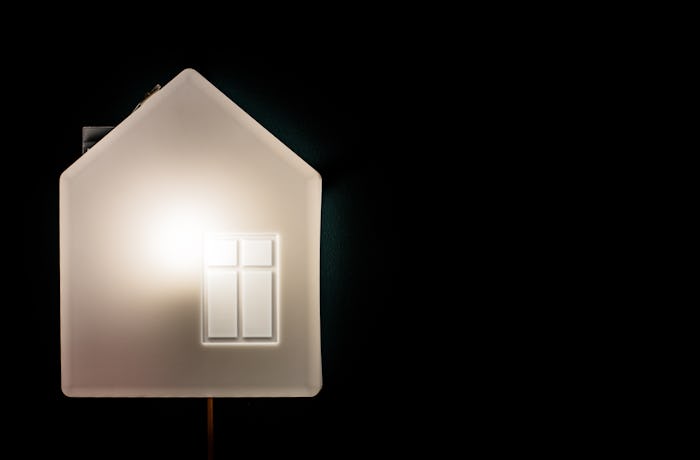Life
If You Had These 5 Phobias As A Child, This Is What It Means About You Now
If you were afraid of big dogs, dark rooms, or the deep end of the pool as a kid, then you had a pretty typical childhood. After all, learning how to deal with these common childhood fears is all part of growing up. But can certain specific childhood phobias also say something about you as an adult? As it turns out, these old fears may continue to affect you in some interesting ways.
To start, however, it's important to straighten out the difference between fears and phobias. An intense, extreme fear — a phobia — will likely interfere with a kid's daily life, according to Parents. Although fears are pretty universal, phobias only affect about 3 to 5 percent of kids, as further explained in Parents. If you had a phobia as a child, then your parents probably remember the events well. It was probably a pretty big deal. (If your own child appears to be struggling with a phobia, then seek help from your pediatrician or a child psychologist.)
Although many people can overcome these early phobias, sometimes they continue into adulthood. For instance, an early phobia of spiders may translate into a lifelong fear of all arachnids, according to Today's Parent. However, it doesn't mean these fears have to last forever. Most phobias are very treatable with techniques such as talk therapy, exposure therapy, and sometimes medication, according to the Mayo Clinic. Read on to see how your childhood phobia might continue to affect your adult life as well, and remember that treatment is an option at any age.
1Darkness
Thanks to their active imaginations, many toddlers and young children are afraid of the dark, according to Better Health Channel. And for some people, that sense of anxiety about dark spaces continues into adulthood. "It is estimated that 11 percent of the U.S. population is afraid of the dark," said clinical psychologist John Mayer, Ph.D. in Glamour. For many adults, this fear can be lessened with the judicious use of lighting. "If you fear the dark, use these practical coping mechanisms to make you comfortable—night-lights, automatic lights, AI devices that can control lights, etc.", said Dr. Mayer. If your fear is more on the level of a phobia, then speak with a doctor or therapist for recommendations.
2Storms
With their startling lightning flashes and loud thunder, storms are another common childhood fear. In general, astraphobia, the fear of thunder and lightening, is more common in children than adults, according to Healthline. So if the sound of thunder freaked you out as a kid, then there's a good chance it doesn't phase you as much as an adult.
If you do still find stormy weather unnerving, then just know that it's generally treatable, like all phobias. In particular, cognitive behavioral therapy (CBT) may help. "Cognitive behavioral therapy is effective because it retrains our subconscious to rid itself of negative thoughts by retraining our conscious perceptions first," said Dr. Manavitz in Psycom. By working with a therapist who practices this technique, you can become more comfortable with stormy weather.
3Strangers
Almost all children experience this particular anxiety. In fact, fearing strangers is a normal stage in childhood development that generally occurs between 7 months to 2 years of age, according to Raising Children Network. So for the most part, being fearful of strangers as a very young child might not mean anything particular about you as an adult. On the other hand, having an intense fear of interacting with strangers into late childhood and adulthood may be related to social anxiety, according to the Mayo Clinic. If these symptoms sound familiar, then speak with your doctor or counselor for help.
4Animals
Anything from the neighbor's dog to a bumblebee might scare a small kid. In fact, a fear of animals is one of the most common fears for children aged 6 to 12 years old, according to Healthy Children. Although many or most kids grow out of these fears, sometimes they persist into adulthood. If you're troubled by a phobia of spiders, snakes, or some other animal as an adult, then consider working with a counselor to address these fears. Again, most phobias tend to respond well to treatment.
5Water
Not everyone is thrilled by the idea of a dip in the pool. As it turns out, water is another common phobia for many children, according to Harvard Health. Like the other childhood phobias, many people outgrow this fear over time. However, plenty of adults don't totally lose all anxiety about the water. About 68 percent of Americans fear deep, open water, and nearly half of Americans are afraid of the pool's deep end, according to Wisconsin Public Radio. Taking some swim lessons with a kind coach or trainer might help increase your confidence around water, and there's always the option of therapy for more intense fears of water. Whether it's the pool or dogs or anything else, phobias don't have to run your life forever.
